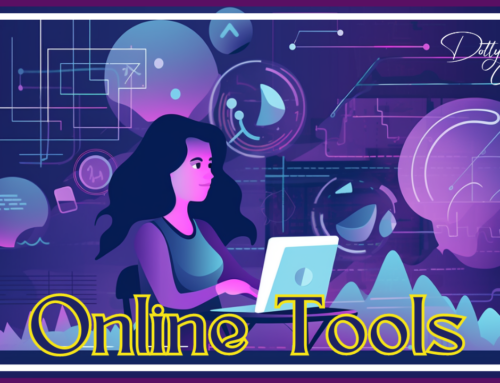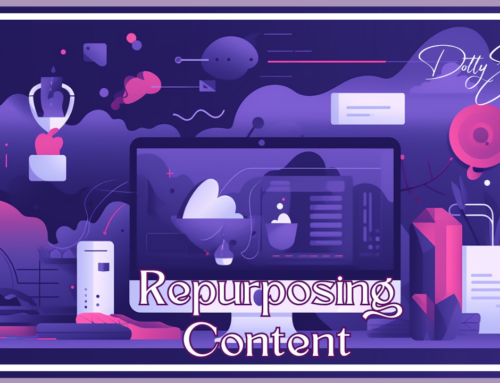
Maximizing Your Impact as a Solopreneur, Author, Coach, or Speaker: The Power of Blogging and Vlogging
As a solopreneur, author, coach, or speaker, your personal brand is your most valuable asset. How do you stand out and make your voice heard in a world where content is king? The answer lies in embracing the power of blogging and vlogging. These tools are not just about sharing content; they’re about building connections, establishing authority, and expanding your reach.
Why Blogging is a Must for Your Personal Brand
In the digital world, the freshness of your content directly correlates with the vitality of your online presence. Regular blogging serves as your website’s lifeline, keeping it alive and thriving. For solopreneurs and authors, this is particularly crucial. Each blog post is an opportunity to present something new and engaging to your audience, ensuring they have a reason to return to your site. This constant stream of fresh content does more than captivate your audience; it also catches the attention of search engines. Every new post is a chance to be indexed, enhancing your site’s visibility and search rankings. This increased online visibility opens new opportunities, be it increased readership, potential collaborations, or business growth.
Demonstrating Your Expertise Through Thoughtful Blogging
For coaches and speakers, your knowledge and insights are invaluable assets. Blogging provides a platform to showcase this expertise. Each article you publish is a testament to your understanding of your niche. It’s an opportunity to delve into topics that matter to your audience, offering insights, advice, and perspectives that only someone with your experience can provide. This form of thought leadership establishes your authority in your field. It’s not just about sharing information; it’s about contributing to the conversation meaningfully, challenging norms, and offering innovative solutions. By consistently delivering valuable content, you reinforce your status as an expert, essential in attracting and retaining an engaged audience.
Building Trust and Credibility with Your Audience
One of the most significant benefits of blogging is building trust with your audience. Trust is the foundation of any successful relationship, especially in the digital realm of limited personal interactions. Your blog becomes a medium through which you can address your audience’s questions, concerns, and challenges. By providing well-researched, insightful, and helpful content, you position yourself as a reliable source of information and advice. This reliability is crucial in building a loyal following. When your audience knows they can count on you for accurate and helpful information, they are likelier to turn to you when they need solutions, advice, or services. This trust is invaluable for solopreneurs, authors, coaches, and speakers, as it translates into a more engaged audience, better client relationships, and, ultimately, business growth.
Regular blogging is a multifaceted tool that offers fresh opportunities for growth, a platform for showcasing expertise, and a means to build trust with your audience. For solopreneurs, authors, coaches, and speakers, it’s essential to maintain a dynamic online presence, establish authority in your field, and forge strong, trust-based relationships with your audience.
Deepening Engagement with a Personal Touch Through Vlogging
Vlogging, or video blogging, is a potent tool for adding a personal touch to your digital presence. Unlike traditional text-based content, vlogs allow your audience to see your expressions, hear your voice, and feel your enthusiasm. This visual and auditory experience fosters a deeper, more personal connection with your audience. As a solopreneur, author, coach, or speaker, this connection is invaluable. It transforms your content from mere words on a screen into a dynamic, interactive experience. Your audience gets to know the person behind the brand, building trust and loyalty that are hard to achieve through text alone.
Catering to Diverse Learning Styles with Vlogging
People process information in different ways. Some readers prefer to digest content at their own pace, while others are visual learners who grasp concepts better through images and videos. Then, some auditory learners retain information more effectively when they hear it. Vlogging is a versatile medium that appeals to visual and auditory learners alike. By incorporating vlogs into your content strategy, you’re not just sharing information but ensuring that it reaches and resonates with a broader audience. This inclusivity is crucial in today’s diverse digital landscape, where catering to different preferences can set you apart from the competition.
Boosting Accessibility and SEO with Vlog Transcriptions
Inclusivity in content also means ensuring accessibility to everyone, including individuals with disabilities. By providing transcriptions of your vlogs, you make your content accessible to those with hearing impairments, reaching a wider audience. Moreover, these transcriptions are a goldmine for SEO. They allow search engines to crawl and index the rich content of your videos, enhancing your online visibility. This practice aligns with best SEO practices and demonstrates your commitment to accessibility and inclusivity.
Embracing the Dominance of Video Content in Digital Strategy
The digital landscape is evolving, with video content rapidly becoming the most consumed online media. By integrating video into your blogs and content strategy, you align yourself with this trend, ensuring your brand remains relevant and engaging in an increasingly video-centric online world. Videos have been shown to increase engagement, shareability, and retention of information. As a solopreneur, author, coach, or speaker, leveraging the power of video allows you to present your ideas more compellingly and memorably, ensuring that your message reaches and resonates with your audience.
Vlogging is more than just a trend; it’s a strategic approach to deepen engagement, cater to diverse learning styles, enhance accessibility, and ride the wave of video content dominance. By incorporating vlogs into your content strategy, you’re not just keeping up with the digital times but creating a more inclusive, accessible, and emotionally resonant brand experience.
Blogging and Vlogging: Long-Term Strategies for Growth
In the digital age, where content is the cornerstone of online presence, blogging, and vlogging are vital strategies for long-term growth and visibility. These platforms offer more than just a way to share your thoughts; they are instrumental in building your brand, enhancing your online footprint, and connecting with your audience on a deeper level.
Continuous SEO Improvement through Regular Content Updates
The digital landscape is governed by the ever-evolving algorithms of search engines, which prioritize fresh, relevant content. By consistently adding new blog and vlog posts to your website, you feed these search engines with new material to index. This ongoing process of content renewal not only keeps your website dynamic but also improves your site’s search rankings over time. As your content library grows, so does your digital footprint, making it easier for potential clients and followers to discover you online.
Leveraging Keyword-Rich Content for Enhanced Online Visibility
The strategic integration of relevant keywords into your blogs and vlogs is crucial. Keywords act like beacons, guiding your target audience to your content amidst the vast online information. By carefully selecting keywords that resonate with your audience and reflect your expertise, you enhance the likelihood of your content appearing in search results. This targeted approach ensures that your content reaches those most likely to find value, increasing engagement and potential conversions.
Consistency: The Foundation of Credibility and Trust
For solopreneurs, authors, coaches, and speakers, consistency in content creation is not just beneficial; it’s essential. A consistent posting schedule establishes a rhythm that your audience can rely on. It signals commitment, professionalism, and dedication to your craft. Regularly sharing high-quality content helps build a reputation as a reliable and credible source in your field. This consistency fosters trust and loyalty among your audience, which is crucial for building a robust and engaged community around your brand.
The Role of Commitment in Content Creation
The effectiveness of your blogging and vlogging efforts is directly tied to your commitment to regular content creation. This commitment means more than sporadic updates; it involves a strategic, disciplined approach to producing and sharing content. For individuals in the personal brand space, this commitment translates into setting aside dedicated time for content creation, brainstorming ideas, researching topics, and engaging with your audience. It’s about creating a content calendar, sticking to it, and continuously seeking ways to improve and adapt your content strategy to meet your audience’s evolving needs and interests.
Blogging and vlogging are not just tools for immediate gains; they are long-term strategies that require patience, persistence, and dedication. By committing to these strategies, you’re investing in the sustainable growth of your brand, enhancing your SEO, building credibility, and establishing a robust and loyal community around your work. This approach ensures that your voice is heard, valued, and sought after in the crowded digital marketplace.
In summary, blogging and vlogging are invaluable tools for solopreneurs, authors, coaches, and speakers looking to amplify their voices and extend their reach.
These chapters are designed to go together OR stand alone. If you found this one on Google and want to read the others, here are the links to the other chapters.
- Chapter 1: Your Website Is Your Hub
- Chapter 2: Lead Magnets | Email Marketing
- Chapter 3: Basic Search Engine Optimization
- Chapter 4: What Are Backlinks?
- Chapter 5: Google Business Profiles
- Chapter 6: Reviews
- Chapter 7: Speaking | Podcasting
- Chapter 8: Content Marketing
- Chapter 9: What Is Blogging?
- Chapter 10: Social Media
- Chapter 11: Video Marketing
- Chapter 12: Repurpose Your Content
- Chapter 13: Awards & Contests
- Chapter 14: Referrals
- Chapter 15: Necessary Online Tools






